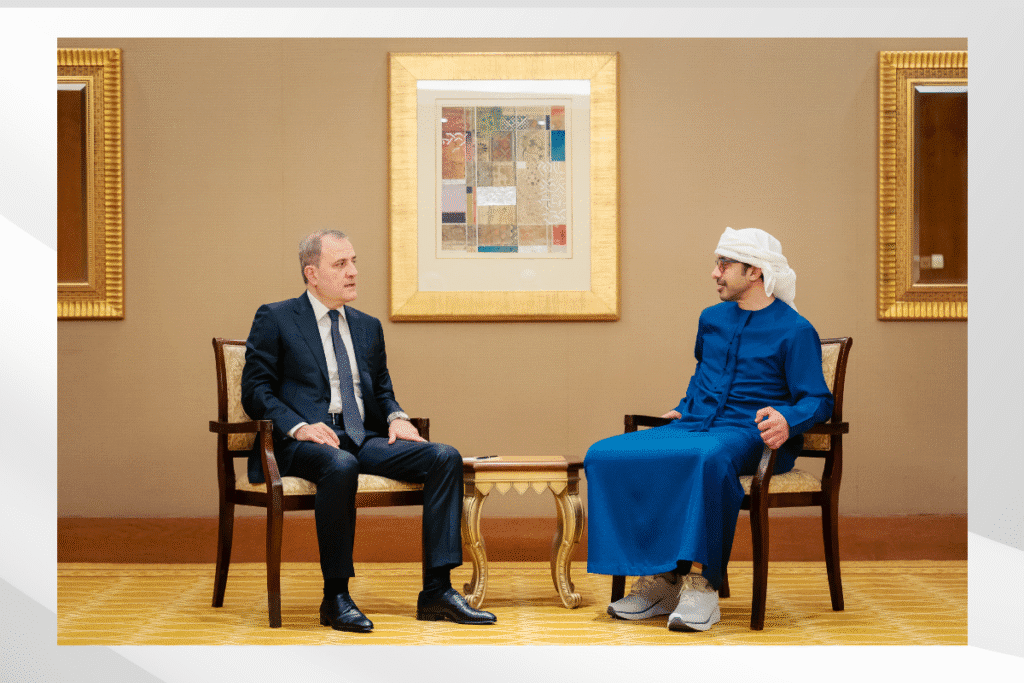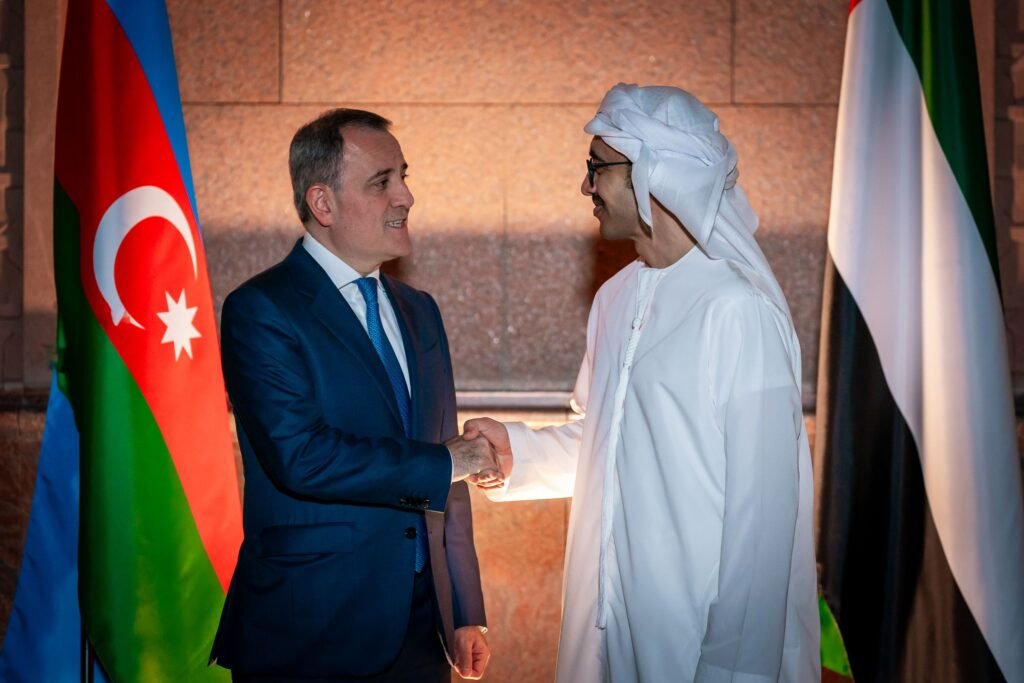Bilateral cooperation between the United Arab Emirates (UAE) and Azerbaijan has taken center stage as Sheikh Abdullah bin Zayed Al Nahyan, UAE’s Minister of Foreign Affairs, met with Azerbaijan’s Foreign Minister to discuss ways to deepen their partnership. These talks, held in a spirit of mutual respect and shared goals, aim to enhance ties in trade, energy, culture, and more. This article explores the significance of these discussions, their outcomes, and what they mean for both nations and the region.
A Growing Partnership Rooted in Shared Interests
The UAE and Azerbaijan have enjoyed a steadily growing relationship over the years, built on shared economic and strategic interests. Both nations are key players in their respective regions—the UAE as a global trade and financial hub, and Azerbaijan as a vital energy supplier in the Caucasus. Their recent talks focused on expanding bilateral cooperation to unlock new opportunities for growth.
The discussions covered a range of topics, including:

- Trade and Investment: Exploring new avenues for economic collaboration.
- Energy Partnerships: Leveraging Azerbaijan’s oil and gas expertise alongside UAE’s renewable energy ambitions.
- Cultural Exchange: Promoting mutual understanding through education and tourism.
- Regional Stability: Aligning on geopolitical issues to foster peace and security.
These areas reflect a shared vision to create a stronger, more resilient partnership that benefits both nations.
Why Bilateral Cooperation Matters
Bilateral cooperation is more than just diplomatic meetings—it’s about creating tangible benefits for people and businesses. For the UAE and Azerbaijan, this partnership is a chance to combine their strengths. The UAE’s advanced infrastructure and Azerbaijan’s strategic location as a gateway between Europe and Asia make them natural partners.

The talks also come at a time when global challenges, like energy security and economic recovery, are top priorities. By working together, both countries can address these issues more effectively. For example, Azerbaijan’s role in supplying energy to Europe aligns with the UAE’s push to diversify its energy portfolio, creating opportunities for collaboration in both traditional and renewable energy sectors.
Key Outcomes of the Talks
The meeting between Sheikh Abdullah bin Zayed and Azerbaijan’s Foreign Minister produced several promising outcomes. While specific details of agreements are still emerging, the following areas were highlighted as priorities:
- Trade Agreements: Both sides expressed interest in reducing trade barriers and increasing cross-border investments. The UAE is keen to explore Azerbaijan’s agricultural and industrial sectors, while Azerbaijan sees potential in the UAE’s technology and logistics markets.
- Energy Collaboration: Azerbaijan’s expertise in oil and gas complements the UAE’s investments in clean energy. Joint projects in green energy, such as solar and wind, were discussed as part of a broader energy transition strategy.
- Cultural Initiatives: Plans for cultural festivals, student exchanges, and tourism campaigns were proposed to deepen people-to-people connections.
- Security Cooperation: Both nations agreed to share intelligence and collaborate on counterterrorism efforts to promote regional stability.
These outcomes signal a commitment to turning discussions into actionable results that will benefit both economies and societies.
Economic Benefits of Stronger Ties

The economic potential of enhanced bilateral cooperation is significant. The UAE is one of the world’s leading hubs for trade and finance, with world-class ports and airports that facilitate global commerce. Azerbaijan, meanwhile, is a critical link in the Belt and Road Initiative, connecting Asia and Europe through its strategic location.
By strengthening trade ties, both countries can boost their economies. For instance:
- Increased Exports: Azerbaijan could export more agricultural products, such as fruits and nuts, to the UAE’s large consumer market.
- Investment Opportunities: UAE businesses could invest in Azerbaijan’s infrastructure projects, such as roads and railways, to improve connectivity.
- Tourism Growth: The UAE’s expertise in luxury tourism could help Azerbaijan develop its own tourism sector, attracting visitors to its rich cultural heritage and natural beauty.
These economic benefits are expected to create jobs and drive growth in both nations, making their partnership a win-win.
Energy: A Cornerstone of Cooperation
Energy is a key pillar of UAE-Azerbaijan relations. Azerbaijan is a major oil and gas producer, with pipelines like the Baku-Tbilisi-Ceyhan (BTC) pipeline playing a crucial role in global energy markets. The UAE, while also an oil producer, has made significant strides in renewable energy, with projects like the Mohammed bin Rashid Al Maktoum Solar Park setting global benchmarks.
During the talks, both ministers explored ways to combine their expertise. Potential areas of collaboration include:
- Renewable Energy Projects: The UAE could share its knowledge in solar and wind energy to help Azerbaijan diversify its energy mix.
- Green Hydrogen: Both nations are interested in green hydrogen as a future energy source, with joint research and development projects on the table.
- Energy Infrastructure: Investments in pipelines, storage facilities, and smart grids could enhance energy security for both countries.
This focus on energy reflects a shared commitment to addressing global challenges like climate change while maintaining economic stability.
Cultural and Educational Exchange

Beyond economics, bilateral cooperation extends to cultural and educational initiatives. The UAE and Azerbaijan both value their rich histories and traditions, and they see cultural exchange as a way to build stronger ties between their people.
Some proposed initiatives include:
- Cultural Festivals: Events showcasing Azerbaijani music, dance, and cuisine in the UAE, and Emirati traditions in Azerbaijan.
- Student Exchange Programs: Partnerships between universities to allow students to study abroad and gain exposure to new perspectives.
- Tourism Campaigns: Joint marketing efforts to promote each country’s unique attractions, from Azerbaijan’s ancient Silk Road sites to the UAE’s modern landmarks.
These efforts aim to foster mutual respect and understanding, creating a foundation for long-term cooperation.
Challenges and Opportunities
While the talks were productive, there are challenges to overcome. Differences in regulatory frameworks, logistical complexities, and geopolitical tensions in the region could pose obstacles. However, both nations are committed to addressing these issues through open dialogue and practical solutions.
The opportunities, on the other hand, are vast. By aligning their strengths, the UAE and Azerbaijan can position themselves as leaders in their regions. Their partnership could also serve as a model for other countries looking to build cooperative relationships in a complex global landscape.
Looking Ahead: A Bright Future for UAE-Azerbaijan Relations
The discussions between Sheikh Abdullah bin Zayed and Azerbaijan’s Foreign Minister mark a significant step forward in UAE-Azerbaijan relations. By focusing on bilateral cooperation, both nations are laying the groundwork for a partnership that is economically, culturally, and strategically rewarding.
As they move forward, the UAE and Azerbaijan will need to maintain momentum by implementing the agreements reached during these talks. Regular follow-up meetings, joint task forces, and clear timelines will be essential to turning their shared vision into reality.
For now, the message is clear: the UAE and Azerbaijan are committed to working together to achieve mutual prosperity. This partnership not only benefits their own citizens but also contributes to stability and growth in the broader region.
Conclusion
The recent talks between the UAE and Azerbaijan highlight the power of bilateral cooperation in addressing today’s global challenges. From trade and energy to culture and security, the two nations are building a partnership that promises to deliver significant benefits. As they continue to collaborate, the UAE and Azerbaijan are setting an example of how countries can work together to create a brighter, more connected future.
Read More: Rochester Institute of Technology-Dubai Graduation: A Milestone Celebration














